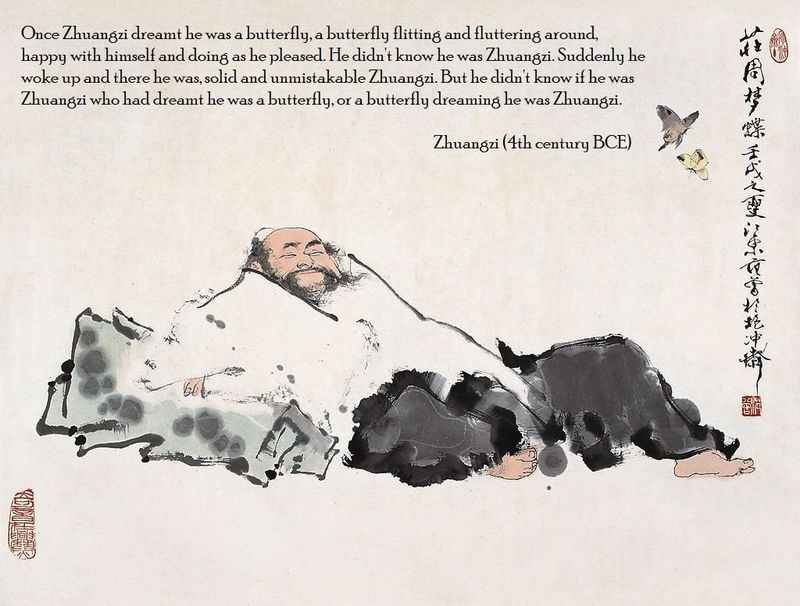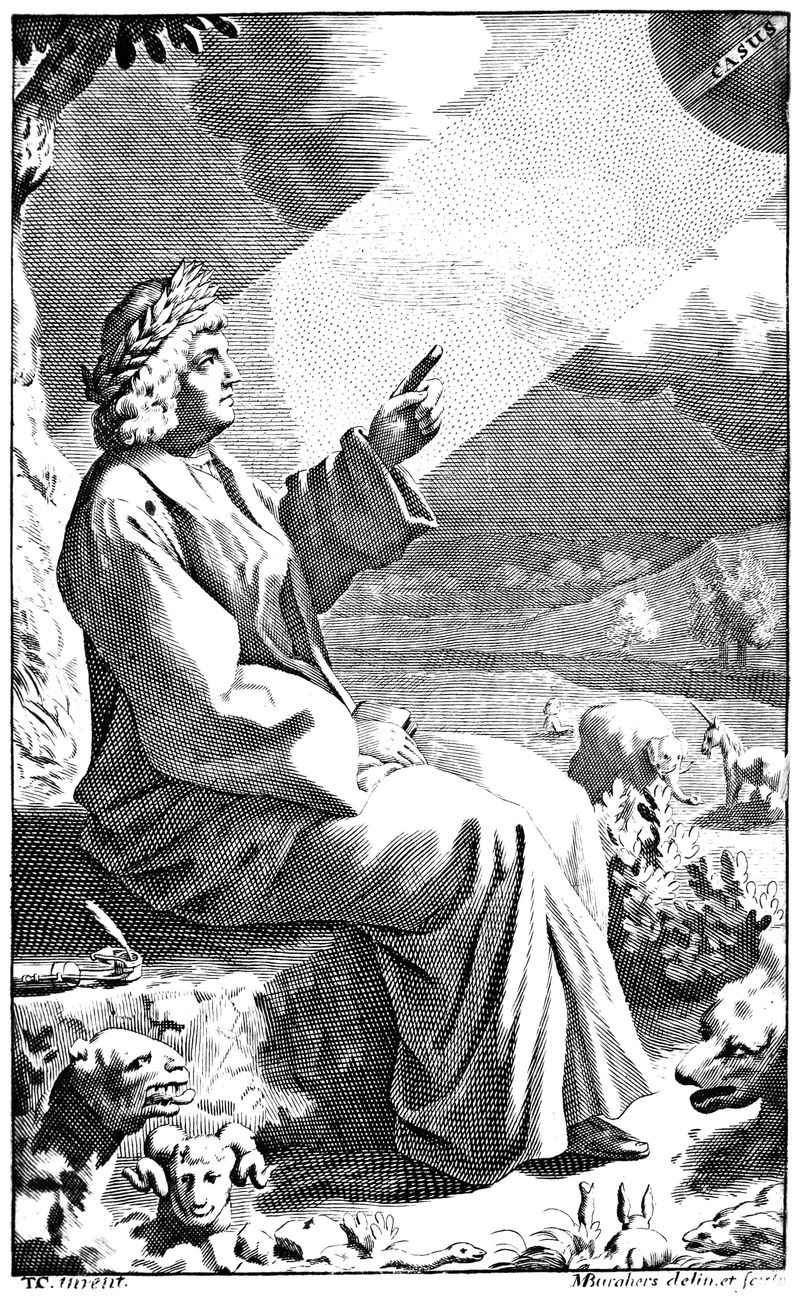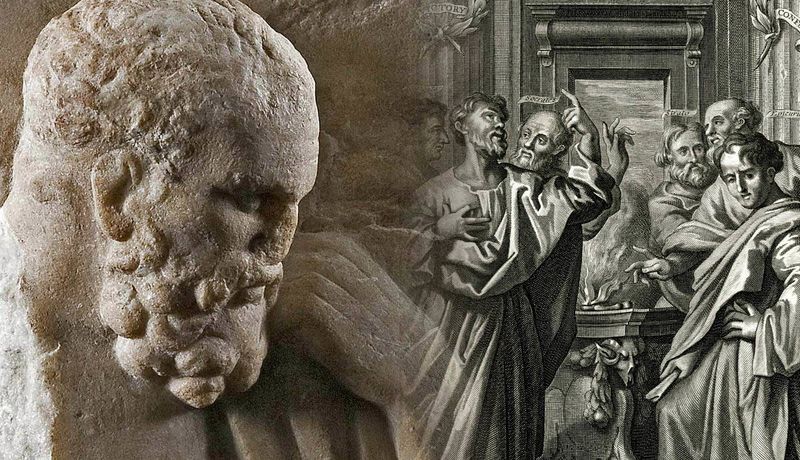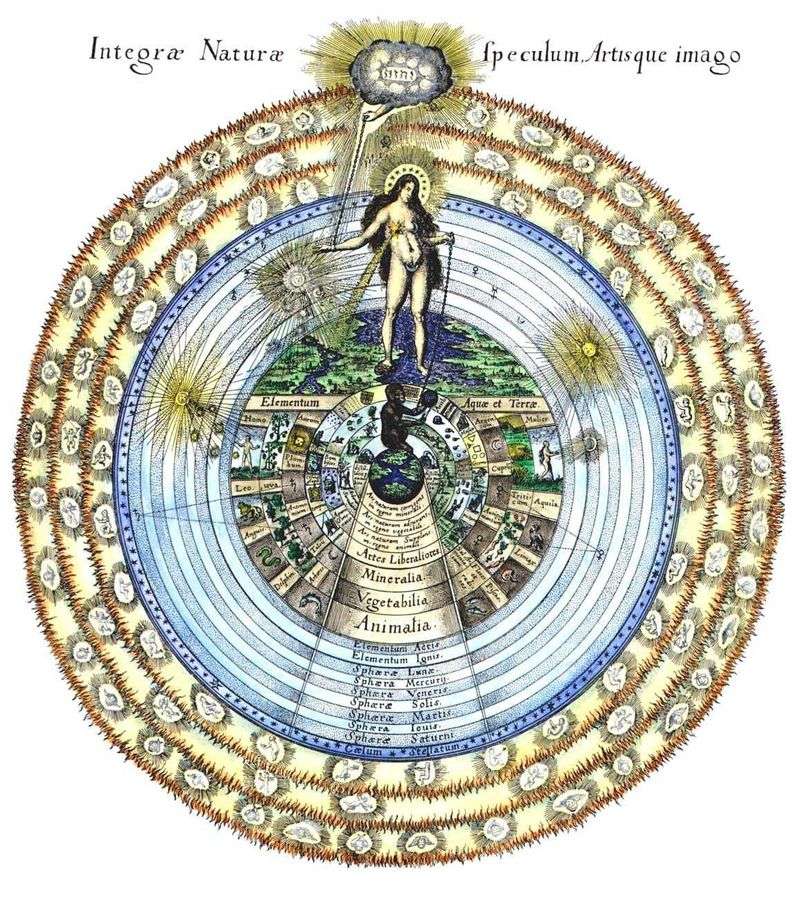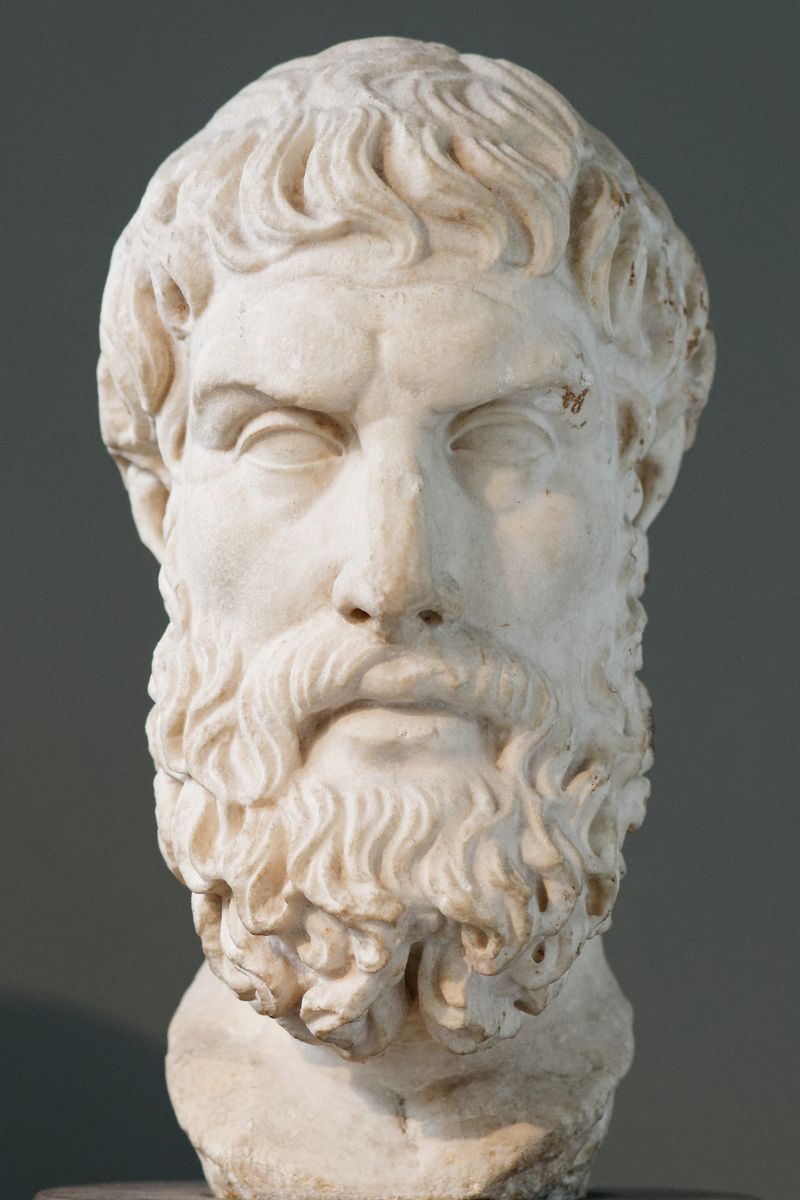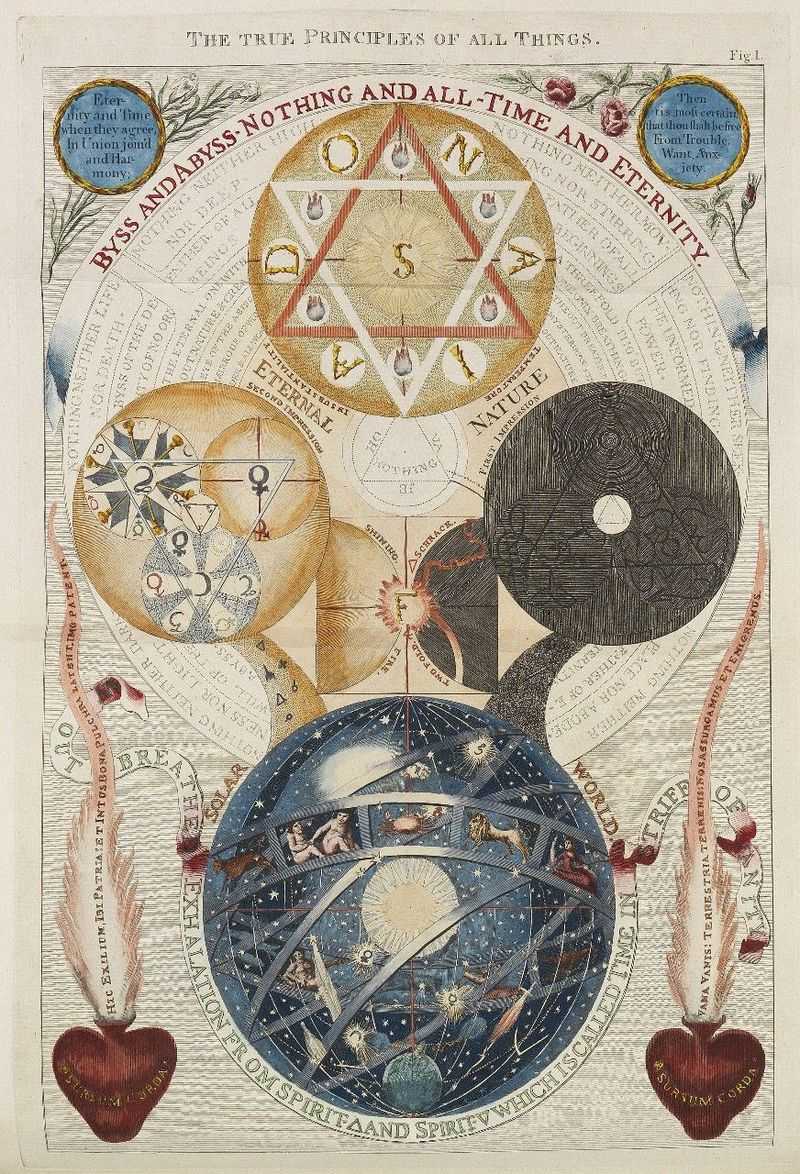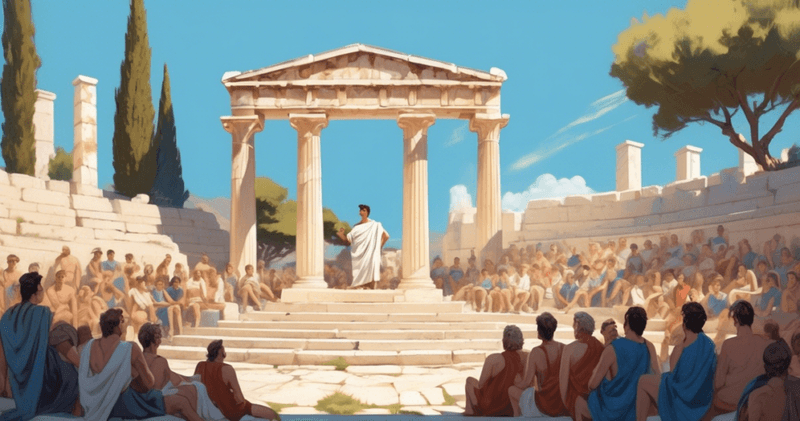Throughout history, ancient philosophers have proposed ideas that challenge our understanding of reality, existence, and the self. Here are 17 ancient philosophies that, while seemingly strange, offer profound insights that can transform your perspective.
1. Zeno of Elea – Paradoxes of Motion
Zeno of Elea, known for his paradoxes, questioned the essence of motion and plurality. His famous paradox, Achilles and the Tortoise, suggests that a swift runner can never overtake a slower tortoise. This philosophical puzzle challenges perceptions of space and time. Zeno’s paradoxes compel us to rethink concepts of infinity and continuity. They highlight the complexities underlying seemingly straightforward ideas. By delving into these paradoxes, one encounters the enigmatic nature of reality. Zeno’s work laid foundational thoughts for future philosophical discourse. Intriguingly, his paradoxes remain relevant in philosophical and mathematical discussions today.
2. Anaximenes – Air as the Fundamental Element
Anaximenes, a pre-Socratic philosopher, proposed air as the fundamental element of the universe. He believed air could transform into other elements through rarefaction and condensation. This early naturalistic explanation of the cosmos challenges traditional elemental theories. Anaximenes’ innovative ideas laid groundwork for understanding natural phenomena. His perspective encourages a reevaluation of how we perceive elemental substances. By proposing air as primary, he invited questions about the nature and transformation of matter. His thoughts resonate with modern scientific inquiries into the building blocks of life, reflecting an enduring curiosity about the universe’s mysteries.
3. Leucippus – The Void and Atomism
Leucippus, an influential thinker, introduced the idea of the void and atomism. He posited that all matter consists of indivisible atoms moving in empty space. This revolutionary concept laid the groundwork for modern atomic theory. His philosophy defied the notion of a continuous substance, offering a fragmented universe view. Leucippus’ ideas challenge our understanding of matter and existence, urging consideration of the unseen forces at play. By introducing a void, he provided a dynamic model of movement and interaction. Remarkably, his legacy persists, echoing in today’s scientific explorations of atomic structures.
4. Pyrrhonism – Radical Skepticism
Pyrrhonism, founded by Pyrrho of Elis, advocates radical skepticism and the suspension of judgment. By embracing uncertainty, one achieves mental tranquility, known as ataraxia. Pyrrhonists argue that acknowledging the limits of knowledge fosters peace. This philosophy challenges absolute truths, urging constant inquiry. Pyrrho’s skepticism invites a fresh perspective on certainty and belief. His approach promotes intellectual humility, encouraging open-mindedness and adaptability. By exploring Pyrrhonism, individuals may find a deeper understanding of human cognition and perception. Interestingly, his ideas resonate in modern philosophical discourse, influencing contemporary thought on skepticism and knowledge.
5. Diogenes of Sinope – The Cynic Philosopher
Diogenes of Sinope, a renowned Cynic philosopher, lived in a barrel and embraced asceticism, rejecting materialism and societal norms. His quest for authenticity led him to carry a lantern in daylight, famously searching for an honest man. This philosophical maverick believed in virtue aligned with nature. His disdain for societal conventions was both revolutionary and controversial. Diogenes’ life was a living critique of social pretenses and advocated a return to simplicity. His ideas challenge modern materialistic values, urging a reconsideration of what truly matters. Did you know? He often challenged Plato, once disputing his definition of a human.
6. Zhuangzi – Embracing Uncertainty
Zhuangzi, a prominent Daoist philosopher, embraced change and uncertainty. His famous parable of the butterfly dream illustrates reality’s fluidity. Zhuangzi’s philosophy encourages considering multiple perspectives. By acknowledging life’s constant flux, he promotes harmony with nature. His teachings challenge rigid thinking and highlight the paradoxes of existence. Zhuangzi’s insights urge a balance between reality and dreams, fostering flexibility. His work remains influential, offering profound wisdom on life’s impermanence. Did you know? The butterfly dream continues to inspire discussions on consciousness and self-identity in both Eastern and Western philosophical traditions.
7. Lucretius – Materialism and the Nature of Things
Lucretius, a Roman philosopher and poet, articulated a universe governed by chance and natural laws. In his work “De Rerum Natura,” he described a world free from divine intervention. This materialistic view challenged traditional religious beliefs. Lucretius’ philosophy encourages a life unburdened by fear of gods or death. His teachings promote pursuit of knowledge and understanding of the natural world. By exploring materialism, he offered insights into the universe’s workings. Did you know? His ideas significantly influenced Enlightenment thinkers, contributing to modern scientific thought and perspectives on life and existence.
8. Anaximander – The Boundless (Apeiron)
Anaximander introduced the concept of the “apeiron,” an indefinite principle from which all things emerge and return. This notion laid groundwork for ideas of an infinite universe. Anaximander’s philosophy challenges finite perspectives, inviting exploration of boundless possibilities. His insights encourage questioning the origins and limits of existence. By proposing the apeiron, he pioneered thoughts on cosmic cycles and transformations. Anaximander’s ideas resonate in modern discussions about the universe’s nature. Remarkably, his work foreshadowed concepts of an ever-expanding cosmos. Did you know? He created one of the earliest known maps of the world.
9. Pythagoreanism – Numbers as the Essence of Reality
Pythagoreanism, founded by Pythagoras, posits that numbers and mathematical relationships underpin the universe’s structure. This philosophy integrates mathematics with spirituality and ethics. Pythagoreans believed numerical harmony governs cosmic and human affairs. By exploring mathematical concepts, they sought deeper understanding of reality. This philosophy challenges perceptions of quantity and quality, revealing hidden patterns. Pythagoreanism invites consideration of mathematics’ role in shaping existence. Did you know? Pythagoras’ discovery of the musical scale revolutionized music theory, showcasing numbers’ influence beyond mathematics. His teachings continue inspiring both mathematical and philosophical inquiries.
10. Hermeticism – As Above, So Below
Hermeticism, attributed to Hermes Trismegistus, posits a correspondence between the macrocosm and microcosm. This philosophy suggests that understanding oneself leads to understanding the cosmos. Hermetic teachings emphasize the unity of all things and the interconnectedness of existence. By contemplating this connection, one gains insight into universal truths. Hermeticism challenges distinctions between the self and the universe, promoting holistic perspectives. Remarkably, it influenced various spiritual and philosophical traditions, including alchemy and mysticism. Did you know? The phrase “As above, so below” encapsulates Hermetic principles, inspiring interpretations across cultures and eras.
11. Anima Mundi – The World Soul
The concept of Anima Mundi describes the world as a living entity with a soul. This philosophy implies a profound connection between all living things and the universe. By perceiving the world as a unified organism, one fosters environmental respect and harmony. Anima Mundi challenges mechanistic views of nature, emphasizing spiritual essence. This belief encourages exploration of interdependence and the sacredness of life. Interestingly, it resonates with contemporary ecological and spiritual movements. Did you know? Anima Mundi played a crucial role in Neoplatonism, influencing Renaissance thinkers’ views on the cosmos and humanity’s place within it.
12. Epicureanism – Pursuit of Pleasure
Epicureanism, founded by Epicurus, teaches that modest pleasures and knowledge lead to a tranquil life. This philosophy challenges indulgence as a path to happiness, promoting simplicity. Epicureans believe in deriving joy from friendships and intellectual pursuits. By appreciating life’s simple aspects, one achieves peace of mind. Epicurus’ teachings encourage balance between desires and rational thought. His philosophy invites reevaluation of pleasure’s role in human fulfillment. Did you know? Epicurus advocated for a life free from superstition and fear of death, inspiring later secular humanist philosophies. His garden community embodied the pursuit of contentment.
13. Neoplatonism – The One and Emanations
Neoplatonism, developed by Plotinus, describes a single source, “The One,” from which all existence emanates. This philosophy emphasizes the soul’s journey towards unity with the ultimate reality. Neoplatonism challenges materialistic perceptions, focusing on spiritual ascent. By contemplating The One, individuals seek transcendence and enlightenment. This philosophy encourages exploration of inner realms and universal connections. Remarkably, Neoplatonism influenced Christian, Islamic, and Jewish mystical traditions. Did you know? Plotinus’ teachings laid groundwork for subsequent metaphysical explorations, shaping Western philosophical thought. His insights continue to inspire those seeking spiritual understanding and oneness.
14. Animism – Spirits in All Things
Animism, a belief system, posits that all entities possess a spiritual essence. This philosophy fosters deep respect for nature and interconnectedness. By honoring the spirit within all things, animism challenges anthropocentric views. This belief encourages harmony with the environment and recognition of life’s sacredness. Animism’s perspectives resonate in indigenous cultures worldwide, emphasizing humanity’s role within a larger ecosystem. Did you know? Animistic practices often involve ritual communication with nature’s spirits, fostering community cohesion. Its teachings inspire modern ecological and holistic movements, advocating for sustainable living and reverence for biodiversity.
15. Idealism – Reality as Mental Constructs
Idealism posits that reality is fundamentally mental, suggesting the material world is a mind construct. This philosophy challenges perceptions of physical reality, emphasizing consciousness. Idealists argue that our understanding shapes existence, blurring lines between mind and matter. By exploring mental constructs, one gains insight into perception and reality creation. Idealism’s perspectives influence various philosophical and spiritual traditions, inviting reconsideration of reality’s nature. Did you know? George Berkeley, a proponent of idealism, famously asserted “to be is to be perceived,” sparking debates on existence and observation’s role. His ideas continue inspiring philosophical discourse today.
16. Daoism – The Way (Dao) and Non-Action (Wu Wei)
Daoism, a philosophy emphasizing harmony with the Dao, advocates for effortless action known as Wu Wei. This principle encourages alignment with nature’s flow. Daoists believe in living simply and authentically, embracing life’s cycles. By releasing control, one discovers peace and spontaneity. Daoism challenges rigid lifestyles, promoting adaptive living. Its teachings resonate with those seeking balance and tranquility. Did you know? Laozi’s “Tao Te Ching” is a foundational Daoist text, offering wisdom on life and leadership. Daoism’s insights inspire mindfulness practices, fostering a deeper connection with the natural world and oneself.
17. Sophism – Relativism and Rhetoric
Sophism, a philosophical movement, argues that truth is subjective and rhetoric shapes reality. Sophists master persuasive language, highlighting moral and ethical fluidity. By challenging absolute truths, they invite reconsideration of knowledge and belief systems. Sophism encourages exploration of diverse perspectives and adaptability. Their teachings emphasize the power of argumentation and communication. Did you know? Protagoras, a notable sophist, claimed “man is the measure of all things,” sparking debates on human perception’s role in truth formation. Sophism’s legacy persists, influencing modern discussions on relativism and linguistic impact.






